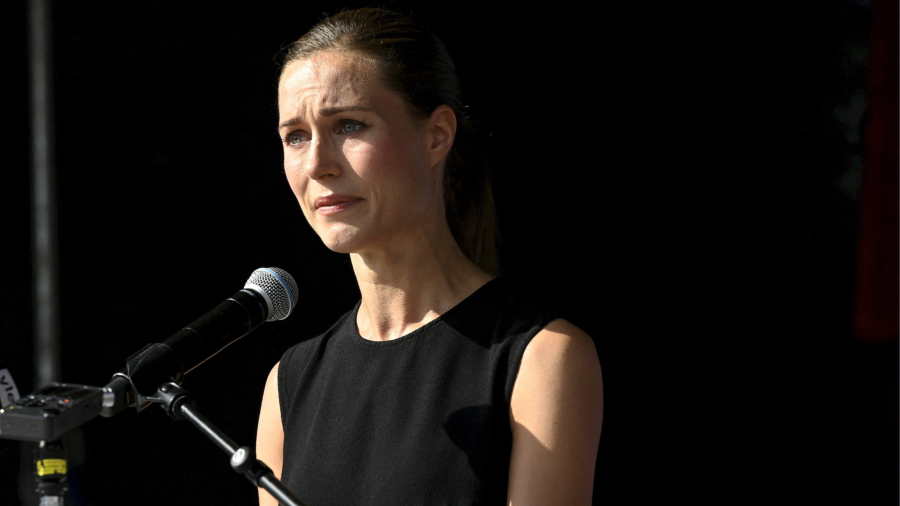The writer is a postdoctoral researcher in political science and international political economy at the University of Zurich
It was a big news week for Finland. The country had joined a handful of other EU countries in dramatically restricting the number of Russian tourist visas — a move that would narrow the main route used by Russians to European destinations this summer. The Nato membership candidate also managed to reach 23 out of the necessary 30 votes from current members of the defence alliance after the French President Emmanuel Macron signed the membership protocols for both Finland and Sweden. To top it all, the Finnish border guard was investigating a suspected airspace violation by Russian fighter jets.
Unfortunately, these were not the developments that attracted the greatest global attention. Instead, pictures and videos of the dancing Finnish prime minister Sanna Marin flooded on to every possible front page and social media platform. Online speculation led opposition politicians to demand that Marin take a drugs test. Although the results were negative, more videos and pictures continued to surface from parties she attended over the summer.
It is hardly surprising that scandals concerning top politicians pique more interest than inflation rates, the likes of which Finland has not experienced since the 1980s, or the €687 million support package that the country managed to secure from the European Commission to compensate energy-intensive companies for indirect emission costs. Neither is it a shock that there is often space for just one story from a small country such as Finland per week — if that.
What was notable was the speed with which the world jumped on the story of Marin’s partying. Media companies in Finland justified their journalistic interest from various perspectives, both political and social: should a prime minister be allowed to spend her weekends as she chooses, assuming no laws are broken and no work commitments neglected? Would the prime minister have been in a fit condition to exercise leadership in case of a sudden crisis? Were there unnecessary security risks taken that could result in personal harm or leave her open to blackmail? And if her conduct raises such questions, is her judgment questionable?
Accusations of sexism abound, many pointing out that as a millennial female leader the 36-year old Marin receives harsher judgment for her free time activities than many of her male predecessors or peers over factors that affected their work. After all, Finland’s politicians have a history of heavy alcohol use: president Urho Kekkonen was notorious for conducting his Soviet-era diplomacy often heavily intoxicated.
However, gender and age are not the only things separating Marin from previous political leaders. The prime minister’s popularity largely stems from her embracing publicity, including social media, in a way that was previously unheard of in Finnish politics. Even if democratic politics has always been a popularity contest, Marin has broadened the arena. And some feel justified in turning the tools that built her power into a political weapon to fight her.
By spending her time off with pop stars and influencers, Marin has also offered unconventional individuals access to power. Defenders hope by appearing more relatable, she can attract more young voters. As she herself put it in a press conference this week, “I am human”. But as always when it comes to shaking up the institution of the prime minister, public discussion of the manner in which it is done naturally follows.
As important as such political questions might be, they seem an afterthought to general obsession with every last detail of Marin’s behaviour. The scandal shows how dangerously easy we all are to distract — both through traditional media organisations and on social media. Primarily, of course, journalists will always ride the news wave. And as the editor in chief of the national Finnish Broadcasting Company (YLE) said, the role of media in a democracy is to scrutinise those with power.
But, as with the string of scandals culminating in the resignation of the UK’s prime minister Boris Johnson, the personality cult in politics does tend to suck the oxygen from more important political and social debates. Certainly, factions within Marin’s own Social Democratic Party (SDP) are frustrated by the space the scandal has taken up.
Marin has demonstrated her commitment to an unwavering foreign policy for Finland despite Russian intimidation in the wake of their invasion of Ukraine. The nation, on the frontline in defending democratic values against Moscow, has had to recalculate its national security strategy. Now, with Marin approaching her first general election in office next April, the Kremlin must be finding the timing of the polarising scandal around her partying convenient, to say the least.
Freedom of the press is crucial. But the heightened security situation makes all of our responsibilities as critical producers and consumers of media more burdensome. Marin herself says some lessons have been learnt. The final decision will be up to the voters next spring.
